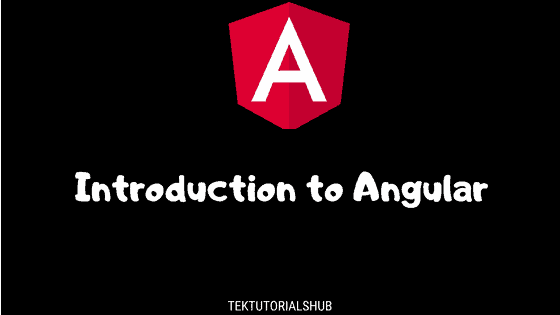Angular provides FromEvent method to create an observable from DOM events directly. In this article let us learn how to do that by creating an observable from the button click event, keyup even & scroll events.
Table of Contents
Syntax
1 2 3 4 5 6 | fromEvent<T>(target: FromEventTarget<T>, eventName: string, options: EventListenerOptions, resultSelector: (...args: any[]) => T): Observable<T> |
FromEventTarget is the first argument to fromevent. It can be a DOM EventTarget, Node.js EventEmitter, JQuery-like event target, NodeList or HTMLCollection. The target must have a method to register/unregister the event handler. (addEventListener/ removeEventListener in case of DOM Event target)
eventName is the second argument, which is a type of event we want to listen to.
Options are the additional argument that we want to pass to , when registering the event handler i.e addEventListener
resultSelector is optional and will be deprecated in future versions.
Example of fromEvent
To create an observable from any event, first, we need to get the reference to DOM element using the viewchild & ElementRef. For example the following code gets the reference to the button element with the id #btn
1 2 3 4 | //Template <button #btn>Button</button> |
1 2 3 4 5 | //Component @ViewChild('btn', { static: true }) button: ElementRef; |
The code this.button.nativeElement returns the native DOM element. We pass this as the first argument to the fromEvent to create an observable to the click event.
1 2 3 4 5 6 | buttonClick() { this.buttonSubscription = fromEvent(this.button.nativeElement, 'click') .subscribe(res => console.log(res)); } |
We can invoke the above method from the ngAfterViewInit method. Note that the @ViewChildwill not initialize the btn element until the ngOnInit Hence we are using the ngAfterViewInit here.
1 2 3 4 5 6 | ngAfterViewInit() { this.buttonClick(); } |
How it works
When we subscribe to an observable, which we created using the fromEvent method, it registers the event handler using the addEventListener in the DOM element. Whenever the user clicks on the button, fromevent captures the value and emits it to the subscriber as the first argument. When we unsubscribe, it unregisters the event handler using the removeEventListener.
The following is the complete code of fromevent from a button click.
1 2 3 4 5 6 7 8 9 10 11 12 13 14 15 16 17 18 19 20 21 22 23 24 25 26 27 28 29 30 31 32 33 34 35 36 37 38 39 40 41 42 43 | import { Component, Input, ViewChild, ElementRef, AfterViewInit, OnInit, OnDestroy } from '@angular/core'; import { Observable, of, from, fromEvent } from 'rxjs'; import { debounceTime } from 'rxjs/operators'; @Component({ selector: 'app-root', templateUrl: './app.component.html', styleUrls: ['./app.component.css'] }) export class AppComponent implements AfterViewInit , OnInit, OnDestroy { title = 'Angular fromEvent Example'; @ViewChild('btn', { static: true }) button: ElementRef; buttonSubscription constructor(private elm: ElementRef) { } ngOnInit() { } ngAfterViewInit() { this.buttonClick(); } buttonClick() { this.buttonSubscription = fromEvent(this.button.nativeElement, 'click') .pipe(debounceTime(300)) .subscribe(res => console.log(res)); } ngOnDestroy() { this.buttonSubscription.unsubscribe() } } |
fromevent from scroll
The following code shows how to create observable from the window scroll event
1 2 3 4 5 6 | scroll() { const source = fromEvent(window, 'scroll'); source.subscribe(val => console.log(val)); } |
fromevent from keyup
The following code shows how to create observable from a keyUp event.
1 2 3 4 5 6 7 8 9 10 | //Component @ViewChild('name', { static: true }) name: ElementRef; ngAfterViewInit() { fromEvent(this.name.nativeElement, 'keyup') .subscribe(res => console.log(res)); } |


